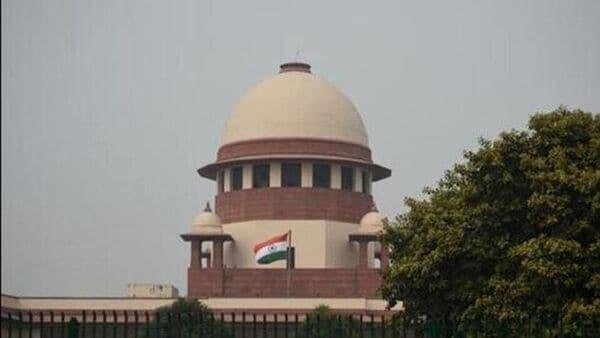
SC Sets Aside Allahabad HC's Verdict Declaring UP Madarsa Act Unconstitutional
“Legislative scheme of UP Board of Madarsa Education Act was to standardise level of education being prescribed in madrasas,” PTI quoted SC.
The apex court also declared that Madrasas can't grant degrees or higher education since that's violative of the UGC Act.
The plea was heard by a bench comprising Chief Justice of India (CJI) D Y Chandrachud and Justices J B Pardiwala and Manoj Misra. The bench had reserved the judgement on eight petitions, including the lead one filed by Anjum Kadari, against the high court verdict.
On March 22, the Allahabad High Court had declared the Act as "unconstitutional" and violative of the principle of secularism, and asked the state government to accommodate madrasa students in the formal schooling system.
On April 5, the CJI-led bench had provided a breather to about 17 lakh madrasa students by staying the verdict of the High Court scrapping the Uttar Pradesh Board of Madarsa Education Act, 2004.
During the hearing, the CJI had observed that secularism means to "live and let live".
Moreover, regulating madrasas was in the national interest as several hundred years of the nation's composite culture could not be wished away by creating silos for minorities, he had said.
The Uttar Pradesh government, in response to a query of the bench, said it stood by the Uttar Pradesh Board of Madarsa Education Act, 2004 and was of the view that the Allahabad High Court should not have held the entire law as unconstitutional.
Agreeing to the submissions of senior lawyer Mukul Rohatgi, appearing for the litigants opposed to the HC verdict, the CJI said, "Secularism means -- live and let live."
Referring to the composite national culture, the CJI had asked the state government, "Is it not in our national interest that you regulate the madrasas?"
The bench further said, "You cannot wish away several hundred years of history of this nation like this. Suppose, we uphold the high court order and the parents of the children still send them to madrasas then it will just be a silos without any legislative intervention mainstreaming is the answer to ghettoisation."
It had also asked to preserve India as a melting pot of cultures and religions.
"Ultimately we have to see it through the broad sweep of the country. Religious instructions are there not just for Muslims. It is there for Hindus, Sikhs, Christians, etc. The country ought to be a melting pot of cultures, civilisations, and religions. Let us preserve it that way. In fact, the answer to ghettoisation is to allow people to come to the mainstream and to allow them to come together. Otherwise, what we essentially would be doing is to keep them in silos," the CJI had remarked.
The bench had wondered what was wrong with the law recognising madrasas imparting religious instructions, mandating they followed certain basic standards but striking down the entire law meant such institutions remained unregulated.
The bench had said it should not be misunderstood as it was equally concerned about madrasa students getting quality education.
However, quashing the entire law was like throwing out the baby with the bathwater, it had said, adding that religious instructions were never an anathema in the country.
The top court had heard a battery of lawyers on behalf of the eight petitioners apart from Additional Solicitor General K M Natraj for the Uttar Pradesh government for about two days before reserving the verdict.
Commencing the final arguments on the pleas against the verdict, the bench, had also heard senior lawyers including Abhishek Manu Singhvi, Salman Khurshid and Menaka Guruswamy for the petitioners.
Senior advocates including Rohatgi, P Chidambaram and Guru Krishna Kumar had also made submission while representing various litigants. Legal Disclaimer:
MENAFN provides the
information “as is” without warranty of any kind. We do not accept
any responsibility or liability for the accuracy, content, images,
videos, licenses, completeness, legality, or reliability of the information
contained in this article. If you have any complaints or copyright
issues related to this article, kindly contact the provider above.

















Comments
No comment